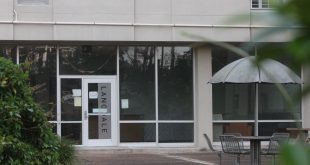Written by: Elan Waite
Though tuition increases are somewhat expected among those in higher education, students may feel more at ease when looking at next semester’s tuition.
University System of Georgia Chancellor Hank Huckaby has been a driving force behind the low 2.5 percent increase in tuition for undergraduate students.
Earlier this year, Huckaby addressed Georgia General Assembly’s Joint Appropriations Committee. He discussed increases in tuitions and fees among universities and explained the recent initiatives aimed at spending money more efficiently as well as making sure students are being served fairly.
“…We have worked very hard to limit tuition increases,” Huckaby said in the meeting. “And we will continue to limit increases. For the past two years, most students have benefited from the lowest increases in a decade. This is true at all institutions except the research universities.”
Huckaby also took into consideration the fees students have to pay along with tuition and has made efforts to reduce increases in that area as well. Fees are requested and must be approved by the board before they can be included in the student fee list each semester.
There are different fee categories: mandatory, miscellaneous, food services and housing rates. The fees are what make many schools differ in amount.
“…Students pay more than just tuition−there are also fees,” Huckaby said. “We have instructed presidents not to request fee increases unless it is absolutely necessary. For example, the number of approved mandatory fee increases has dropped from 67 in fiscal year [20]12 to 29 in fiscal year [20]14.”
Walter Peacock, director of admissions at VSU, shares the chancellor’s sentiment on why increases should be low.
“It’s still a bargain; the only problem is this economic recovery is so slow and people are so unsure of it,” Peacock said. “Tuition is still a hurdle and a deterrent for some people being able to come here; there is no question about that.”
State funding has been decreasing for a while, which is another reason why students will see an increase in tuition.
“The average has always been between 3 and 5 percent,” Peacock said. “One of the problems that we’ve had is that the state of Georgia used to contribute 75 percent to the cost of education. For every dollar that you put in they would put in three, but now it’s around 45 percent of the cost of education. We’ve had all these budget cuts the legislature has made to education, and that’s not good. ”
The combination of enrollment and state funds has caused an issue for tuition.
“These are challenging times for public higher education,” Huckaby said. “Since fiscal year 2009, our state funds were reduced by more than a billion dollars while our enrollment increased by 9.4 percent.”
For a look at the approved rates for the upcoming fiscal year, go to www.usg.com. ![tuition_infographic[1]](http://blog.valdosta.edu/vsuspec/wp-content/uploads/sites/20/2014/03/tuition_infographic1.jpg)
 The Spectator The independent student newspaper of Valdosta State University
The Spectator The independent student newspaper of Valdosta State University




